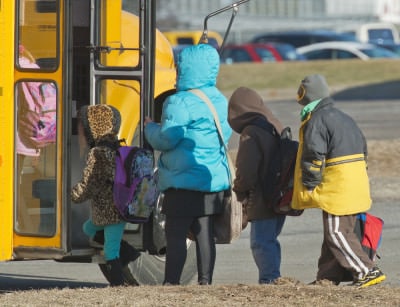The State Department of Education is trying to make it easier—and faster—for teachers to receive their licenses to work in North Carolina classrooms— a move intended to plug one of the many holes in a leaky teacher workforce pipeline.
“Educators and their employers in North Carolina have raised concerns about how long it takes to issue a teaching license, citing wait time of 6 months and longer,” says a report from TNTP to state lawmakers. The North Carolina Department of Public Instruction contracted with TNTP to review licensure procedures, and representatives shared their findings with the Joint Legislative Education Oversight Committee in January.
The TNTP review included surveys, interviews, and a review of the current process for implementing the state’s teacher licensure laws. It found challenges and inefficiencies.
Wait times of six months would run counter to DPI’s goal timelines for issuing teacher licenses: 51 calendar days for initial licenses from in-state candidates, 67 days for out-of-state educators, and 50 days for lateral entry applicants.
Much of that delay appears, from the TNTP review, to hinge on a small staff, confusing messaging, and week technology.
“People charged with implementing licensure policy are uncertain what current policy is and how to implement it,” the review stated. Fourteen LEA officials were surveyed as part of the review, and when asked, “Do you feel you have all the information you need regarding NC licensure policies and processes within existing resources?” none had “unequivocally positive” responses.
The delay in processing teaching licenses makes it difficult for local school districts to fill vacancies, especially hard-to-staff positions, in a timely manner. North Carolina’s teacher shortage is partially fueled by an inability to get qualified educators into the classrooms where they are needed most. Speeding up the licensure process would not solve the teacher pipeline crisis on its own, but it will help ease one of many burdens felt, particularly, by smaller, more rural school systems.
TNTP’s review of North Carolina’s licensure process noted other states (albeit ones with smaller populations) can successfully issue teaching licenses in half the time as DPI’s stated goal, and much faster than the reality during the busy summer hiring months.
Due to the lag time, recent graduates or lateral entrants can not be hired by school systems because they don’t actually possess a license to teach—even if they are the most qualified person for the job.
Some districts, such as Cumberland County, have come up with workarounds to this challenge. Cumberland County Schools uses a program it calls “options teachers” to hire educators who, for various reasons, have not received a teaching license but are working toward one. “It was a mechanism to get those individuals into our buildings as quickly as possible,” says Reuben Reyes, Cumberland county’s associate superintendent of human resources. He calls the options teachers “super substitutes.” As the teachers are able to receive their licenses, they are reclassified and their compensation increases accordingly.
The TNTP review of North Carolina’s teacher licensure process includes 31 recommendations to make it more efficient and less confusing for all stakeholders. If the state successfully reduces peak-season licensure issuances from six months to less than eight weeks, programs such as Cumberland County’s “options teachers” would likely become less of a necessity.
“We keenly acknowledge the need for the improvements,” a DPI official told lawmakers.
Recommended reading




